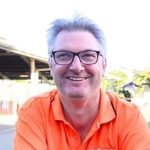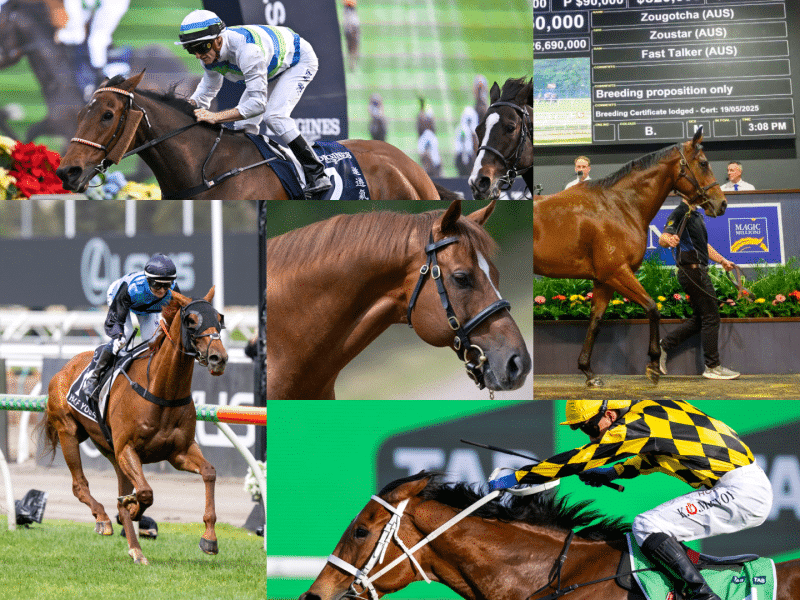Rowe On Monday – Alan’s Green racing legacy, a Rising vision for Japanese success and Thai industry boost on agenda

In this week’s edition of Rowe On Monday, Tim Rowe chats to Bruce Elkington about the racing interests of the late Alan Green, to Kosi Kawakami about a Flemington upset and probes the possibility of a boom in the racing industry in Thailand.
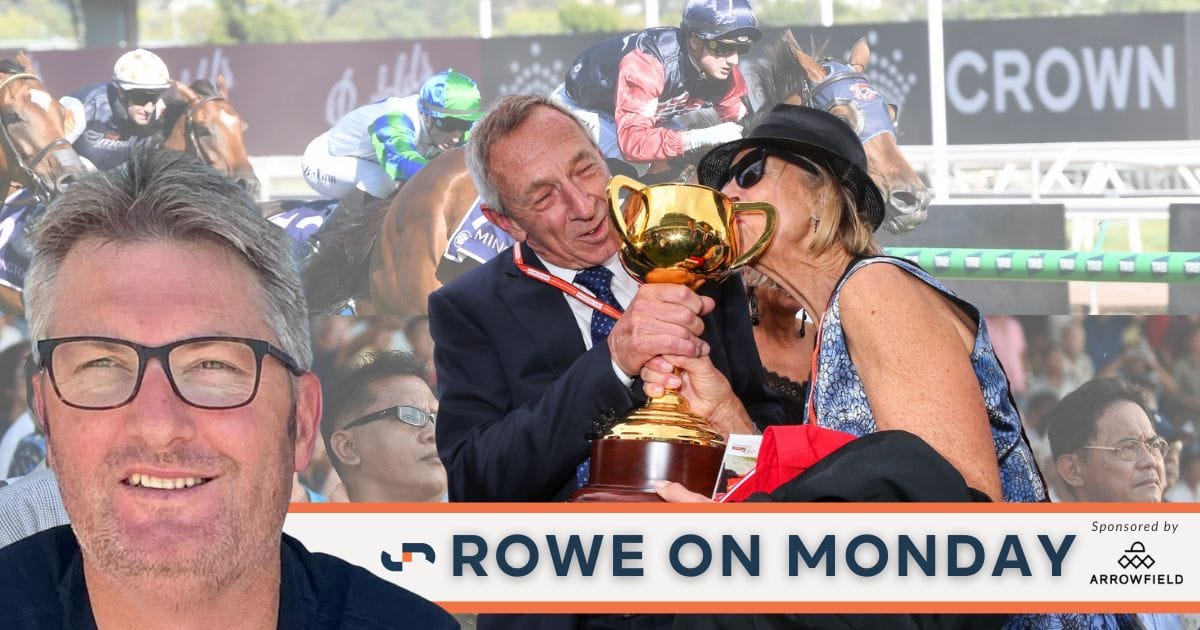
How Alan Green made waves in racing
Forty-five years ago, Alan Green and his great mate Brian Singer walked up the driveway of Meggs and Bruce Elkington’s place near Geelong carrying a slab of beer.
Green and Singer, who founded surfwear brand Quiksilver, offered the father-and-son a horse to train: Venus And Mars.
From that moment onwards, the father-and-son Elkingtons and Green and Singer became great mates.
The friendship was solidified by the fact that the horse Singer and Green gave to the Elkingtons to train won the 1981 Group 1 WATC Australian Derby, at the time the country’s richest three-year-old race.
Surfwear icon Green died last week, aged 77, after a battle with cancer. His death triggered numerous tributes acknowledging his enormous contribution to the world of surfing through the behemoth that became Quiksliver, a fashion label built through board shorts which he established in 1969 about a year after he and Singer founded rival brand Rip Curl.

Bruce Elkington described Green “as his own man” when asked about the prominent self-made Victorian business identity who was a legend from Torquay on the Victoria’s Surf Coast.
“He liked to do things his own way, which is understandable, but he was a great man. Once you were a friend of Alan, you were a friend for life,” Elkington says of his late friend, recalling the first time they met.
In tributes in surfing publications following Green’s death last week, the entrepreneur’s iconic board shorts and the wider Quiksliver story was recalled.
“We sometimes get credited with designing the first ‘technical’ board short, but the truth is, we used snaps and velcro instead of flies because I’d bought a supply of them when I started making Rip Curl wetsuits,” Green said in the book The Mountain and the Wave: The Quiksilver Story.
“The yoke waist, which is higher at the back than the front, was the other difference.”
While Green, who traded under Echo Beach Bloodstock and for a time was a partner in Vinery Stud, was captivated by surfing and skiing, he also had a love of thoroughbred racing.
Alongside Lloyd and Nick Williams, Singer and company, Green won three Melbourne Cups, firstly with Almandin in 2016, then Rekindling in 2017 and Twilight Payment in 2020.
He also raced Benicio, Samaready, Exceedance, Headwater and Afleet Esprit and bred champion South African two-year-old Entisaar as well as highly talented horses Sterling Grove, Stokehouse, Roots, Silversands, Malasun, Diamond Diesel, Outrageous, Very Tempting and Deep Image.
Vinery Stud holds the family of Alan Green close in our thoughts at this sad time following the passing of the former Vinery partner and Quicksilver founder. pic.twitter.com/Uqg7d0AmSP
— Vinery (@VineryStud) January 17, 2025
Green and Singer also race Written Tycoon three-year-old Cilacap, who has won her past two starts before Christmas for trainer Grahame Begg with the promise of more to come.
“Alan had a share in Vinery Stud and we used to get up there two or three times a year and look at all the mares and foals and everything,” Elkington said.
“He really enjoyed that and it was another great side of his racing career.”
The 1995 Wagga Wagga Gold Cup, a Listed race worth $100,000 at the time, also sticks in Elkington’s memory when thinking of Green.
“We set a horse up for the Wagga Cup at 25-1. horse called Top Guy and he won the race for Alan … and his great mate Damien Oliver rode the horse,” the retired trainer recalled.
“That was one of many highlights.”
Vinery also paid tribute to Green.
“It was a life well lived and one that will be remembered, not only through the Quiksilver brand but also through his contributions to the racing industry,” Vinery posted.
Green is survived by his wife Barbara and children Fletcher, Holly, and Roxy.
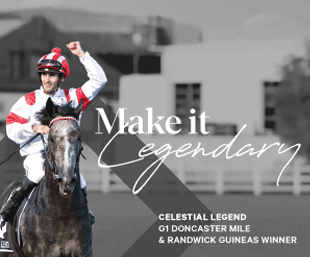
Kosi can – More Japanese-sourced success
Kosi Kawakami can’t take credit for finding lightly raced mare Yachiyo, a promising maiden winner at Pakenham on Friday evening, but the Japanese syndicator deserves the plaudits for Nishino Crescent scoring at Flemington less than 24 hours later.
The victories provided a pertinent reminder about the strength of the Japanese thoroughbred.
One of the principals of Rising Sun Syndications, Kawakami was celebrating the performance by the Henry Dwyer-trained Nishino Crescent, a first Saturday win for the six-year-old by Satono Aladdin, after watching Yachiyo score the previous night.
It continues a long fascination with the Japanese industry. Arrowfield, in particular, has shuttled Japanese horses, with Maurice and Admire Mars the two on the Hunter Valley farm’s stallion roster at present.
Australian Bloodstock bought Group 1-winning sprinter and now Yarraman Park Stud-based sire Brave Smash out of Japan and prominent Victorian owner Ozzie Kheir sources horses from the land of the Rising Sun with mixed success.
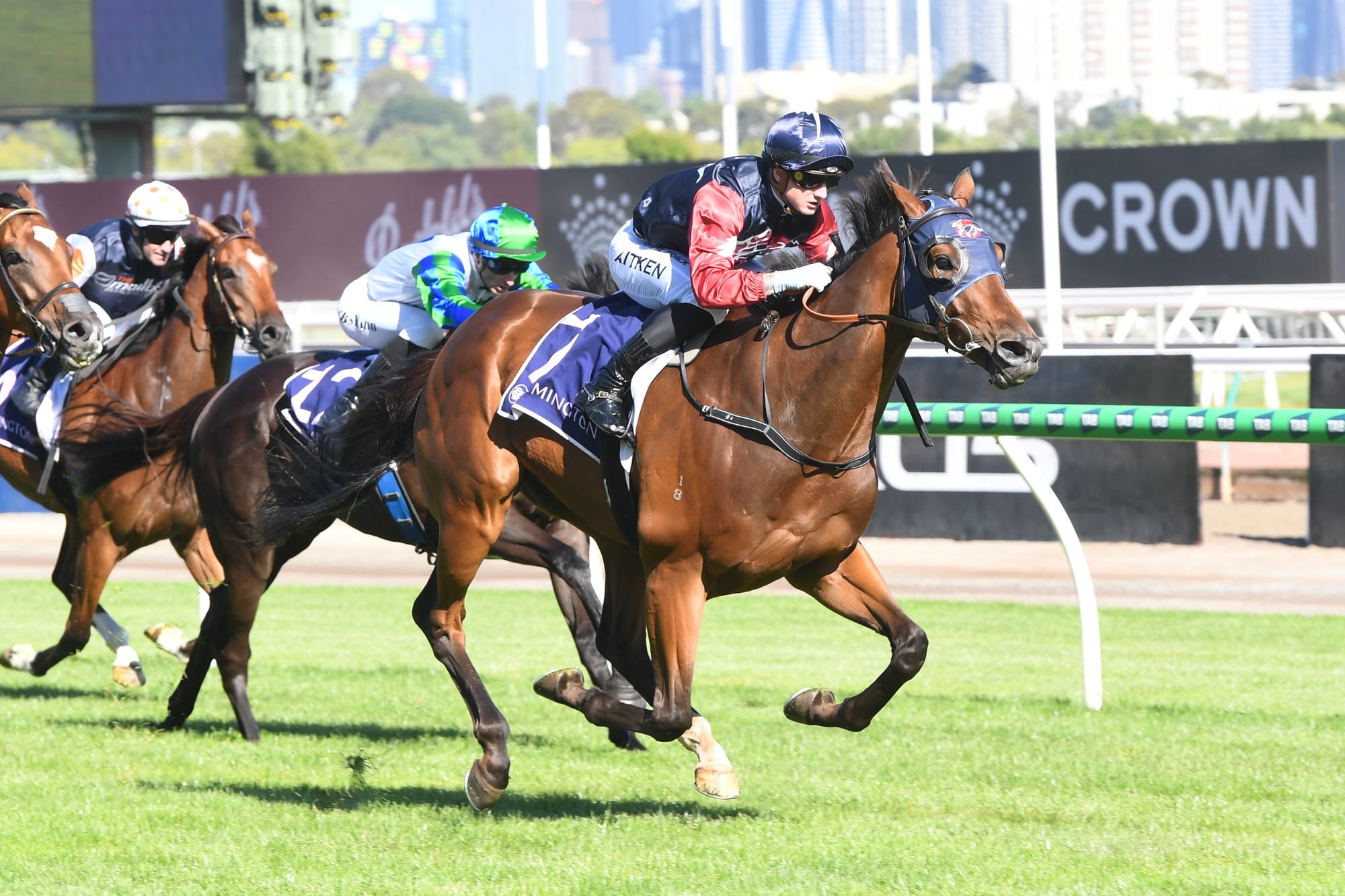
Kawakami says Nishino Crescent, a winner of five races since being imported to Australia and trained by Dwyer at Ballarat as a maiden in early 2023, is an example of the style of horses he deems suitable for the Australian market.
At the time Nishino Crescent had been placed in five of his nine starts as a three-year-old but the horse faced fewer opportunities as a four-year-old, prompting his owner to sell him to Rising Sun Syndications.
“He had run against a potential Group horses and because of the connections I have (in Japan) … so we were able to get all the details about him and we just thought, ‘you know, he’ll be wasted in NAR circuit’, so we bought him, we talked to the previous owner and he was happy to sell and give him a second chance in Australia,” Kawakami said.
Buying Nishino Crescent wasn’t overly difficult and was rather cost-effective, until you factor in the travel expenses.
“That is definitely the hardest part, the cost of the transport from Japan to Australia, it’s actually ridiculous (how expensive it is),” the syndicator said.
“I am not sure why, but if you’re bringing the horse from Europe to Australia, it’s not that bad, it’s $35,000 to $40,000 but when they come from Japan, the cost is pretty much double.”
Nishino Crescent causes an upset in the last at Flemington
The Japanese product scores his fifth win on Australian soil @HDwyerRacing @AitkenMitch pic.twitter.com/m4ewXZkdcM
— Racing.com (@Racing) January 18, 2025
Meanwhile, the Mick Price and Mick Kent Jr-trained Yachiyo won her second start over 1400 metres, a performance which signalled there are better things in store for the granddaughter of four-time Australian Group 1-winning mare Mosheen.
By Epiphaneia, who was third on Japan’s sires’ table last year, the Trilogy-owned Yachiyo cost ¥66 million (A$680,000) at the 2022 JRHA JRA Select Yearling and Foal Sale. Kawakami was at the sale when Kent Jr bought the well-bred filly.
Buying yearlings out of Japan under the Rising Sun Syndications banner is off the cards, but Kawakami won’t rule it out in the future.
“It’s a bit hard as you’re obviously buying northern hemisphere yearlings and they’re six months behind, so you’ve got to be really patient when they’re two and three and you’ve got to wait for two years to get to races,” Kawakami said.
“It’s a patience game and they’re very expensive, but we’ll have to give it a go one day … maybe get a Derby or a Queensland Oaks horse.
“At the moment, our focus is on the tried horse.”
Yachiyo storms home on the outside & earns her spot in the final of the Sportsbet Future Stars Series ⭐️@JyeMcNeil‘s winning ride earns him double points in the jockey contest after cashing in on his Power Play @MickPriceRacing @SthsideRacing pic.twitter.com/3C5y1GDnm8
— Racing.com (@Racing) January 17, 2025
It’s not all one-way traffic, of course.
Japanese trainer Mitsu Nakauchida earlier this month paid $3.2 million for the Home Affairs-Sunlight filly at the Magic Millions sale on the Gold Coast with the intention of racing her in his home country.
Thai racing another step closer
Developers behind a proposed new racecourse in Thailand, one which promises to catapult the sport into the mainstream throughout Asia and become a key export market for Australasia, are hoping government legislation will fast-track the plan.
The wealthy Falcon group, one of two outfits with plans to invest heavily in racing in Thailand, wants to open a racecourse in or near Bangkok and create a thoroughbred industry that is sanctioned internationally.
The Thai government last week granted approval for a draft law that would legalise casinos in the Asian country.

Falcon representative Eric Koh, who bought four yearlings at the Magic Millions to be raced in Australia, said plans for racing in Thailand were ongoing.
“The project is still in place and definitely progressing, even if it’s at a slower pace than I have anticipated,” Koh said.
“The Thailand Horse Racing Association and their chairman and vice-chairman have been very receptive to all the proposed ideas and suggestions and remain committed to the set goal that the new racecourse and its racing is to be of international standards.
“A new law encompassing the new Casino Act and Totalisator and Horse Racing Act is being drafted and we are endeavouring to have it as comprehensive as possible so as to lay path to ensure the operational and wagering success of the new racecourse.”
At present, the Royal Bangkok Sports Club hosts race meetings usually on a fortnightly basis.


